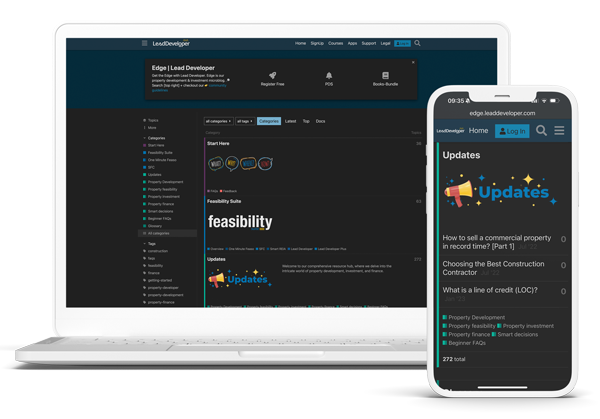Checklist for Building Your Investment Team
1. Initial Team Establishment:
- Identify the types of professionals needed for your real estate investment team.
- Research and list potential real estate agents, solicitors, accountants, and valuers.
- Evaluate the experience and expertise of each professional in relation to real estate.
2. Before Property Search:
- Ensure your team is in place before beginning your property search.
- Discuss and align your investment goals with each team member.
- Establish clear communication channels and protocols with your team.
3. Team Capabilities for Quick Actions:
- Verify the team’s ability to act quickly in various market conditions.
- Conduct a readiness assessment for quick transaction closures.
- Develop a strategy for fast decision-making and offer placements.
4. Research and Analysis:
- Coordinate with your team to effectively research properties before making offers.
- Plan for comprehensive property evaluations including legal, financial, and physical aspects.
- Implement a process for thorough market analysis and property valuation.
5. Making Informed Offers:
- Discuss the implications of conditional versus unconditional offers with your team.
- Ensure financial readiness before approaching a property deal.
- Involve your legal advisor in reviewing and making offers on properties.
6. Legal Advice and Support:
- Seek a real estate solicitor experienced in the Australian market.
- Have your solicitor review sale documents for any unique conditions or legal complexities.
- Utilize legal expertise for complex transactions, especially those involving special financing or loan assumptions.

 You are missing out if you haven’t yet subscribed to our YouTube channel.
You are missing out if you haven’t yet subscribed to our YouTube channel.
7. Selecting the Right Legal Help:
- Decide between using a solicitor or a conveyancer based on the complexity of your transactions.
- Evaluate the cost versus benefit of each option.
- Ensure your legal advisor is skilled in conveyancing and property law, particularly in tenancy and commercial lease laws.
8. Continuous Team Evaluation:
- Regularly assess the performance of your team members.
- Stay informed about changes in real estate laws and market conditions.
- Foster a culture of ongoing learning and adaptation within your team.
9. Inspecting with a Building Expert:
- Hire a qualified builder for property inspection, regardless of the property’s age.
- Obtain a building report and a pest-inspection report, each costing around $400-$600.
- Schedule building and pest inspections about a week before an auction.
- Use the inspection reports to understand current and potential future maintenance issues.
- Consider using the reports for price negotiation if major flaws are identified.
10. Working with Real Estate Professionals:
- Understand the role of real estate agents in marketing and selling properties.
- Acknowledge the commission-based structure of real estate agents’ fees.
- Learn negotiation tactics used by agents to align buyer and seller price expectations.
- Be cautious when disclosing your budget to agents.
- Research and understand the role of buyers’ advocates in the property buying process.
11. Utilizing Buyers’ Advocates:
- Consider hiring a buyers’ advocate for impartial dealings and local industry insights.
- Understand the commission structure of buyers’ advocates.
- Assess the benefits of advocates in identifying underpriced properties and negotiating prices.
- Verify the advocate’s expertise in the local market and their investment criteria.
- Ensure the advocate’s investment strategy aligns with your financial goals and risk tolerance.
12. Understanding the Advantages of Advocates:
- Recognize the potential cost savings and risk reduction offered by advocates.
- Evaluate how an advocate’s property recommendations align with your investment criteria.
- Consider different property investment focuses, such as tax minimization or geared properties.
- Determine if the advocate’s approach matches your income and wealth creation plans.
13. Building the Right Team
- Identify real estate professionals with expertise in your target geographic market.
- Verify the professional license status of each team member.
- Obtain and check bona fide references from recent clients.
- Choose professionals with strong communication skills.
- Select representatives with proven negotiation skills and a reputation for honesty and integrity.
14. Utilizing Real Estate Agents
- Build relationships with agents specializing in your desired property types and areas.
- Regularly communicate with agents for updates on local market trends and opportunities.
- Be strategic in sharing your budget and investment preferences with agents.
- Utilize agents’ insider knowledge to access unadvertised properties and exclusive deals.
- Balance agent interactions with your own research through the internet, newspapers, and other listings.
15. Evaluating and Avoiding Risks
- Stay vigilant about property spruikers and their get-rich-quick schemes.
- Be skeptical of property investment seminars and avoid impulsive commitments.
- Research the background and track record of any seminar or course before investing in it.
- Approach property deals offered by developers with caution, considering additional costs and potential overpricing.
16. Dealing with Developers and Leasing Agents
- Understand the risks and benefits of purchasing properties directly from developers.
- Consider the advantages of buying slightly older properties over brand-new ones.
- Assess the need for leasing agents in managing your investment properties.
- Evaluate potential leasing agents based on their property management portfolio, vacancy rates, fee structure, and tenant screening processes.
17. Financial Planning and Valuation
- Seek a financial adviser who can provide holistic and unbiased investment advice.
- Prefer financial advisers who offer fee-for-service arrangements.
- Ensure your financial adviser supports and understands property investments.
- Use valuers for their insights into property value, market dynamics, and renovation potentials.
- Leverage valuers’ expertise in identifying properties with hidden value-add opportunities.
18. Maximizing Investment Returns
- Regularly consult your financial adviser to align property investments with your overall financial goals.
- Utilize valuers to assess the current and potential value of properties.
- Diversify your investment portfolio to protect against market volatility.
- Stay informed about market trends, legal changes, and investment opportunities.
- Continuously evaluate and adjust your investment strategies based on market and economic conditions.
Discover, Engage, Innovate: Edge Awaits!

✓ Explore with Demos: Watch our Feasibility Suite demos and see what’s possible.
✓ Learn from Success: Dive into real-life case studies for practical insights.
✓ Engage, Inquire, and Innovate: Ask questions, request features, and engage in lively discussions.
✓ Showcase Your Projects and Gain Insights: Share your projects and get personalized feedback.
✓ Free Resources Galore: Access a treasure trove of free resources to keep you informed.
✓ Exclusive Training: Enjoy members-only training to sharpen your skills.
 Make It Real
Make It Real
Start Your Journey Today!
You are missing out if you haven’t yet subscribed to our YouTube channel.
Make It Real


